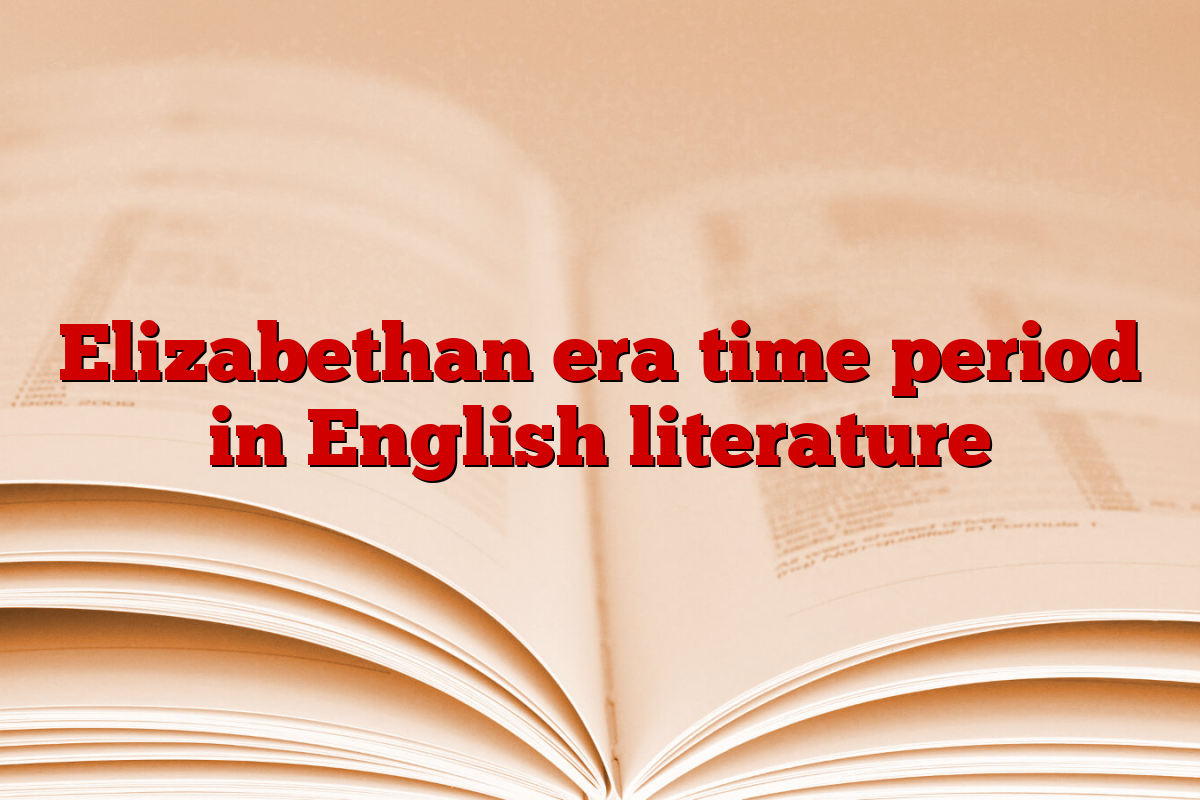Learning about authors and their works, themes, plots, and other details about their lives is not enough to fully understand literature. It has a deep connection with the changes in socio-political mood and trends of the times. It also forms the basis of distinction for different eras and time periods.
The Elizabethan era is one of the most important periods in English literature, known for its strength and inclination to emulate classics such as Virgil and its sense of innovative form. Thus, it is important to understand the background and characteristics of the Elizabethan era. Let’s jump in.
What is the Elizabethan era?
The Elizabethan era in English literature refers to the period that corresponds to the reign of Queen Elizabeth I of England (1558–1603). Often, periods or specific eras in English literature are named after some eminently recognizable figure in the literary world or someone with socio-political status. The Elizabethan period is considered to be from 1550 to 1630. All works written during this period are considered Elizabethan literature.
Historical background of the Elizabethan era
The Elizabethan era (1550–1630) in English literature provided a favorable environment for the arts and writers to flourish. This era is named after the reign of Queen Elizabeth. As far as the historical background of the Elizabethan era in relation to English literature is concerned, two major themes can be seen.
- sense of settlement – Although there were still some dynastic problems during this period, the political climate of the country was stable. In comparison to the wars and anarchy of the previous period, it did not culminate in open war. The Union of the Crowns resolved ancient feuds between Scotland and England. This helped literature in a big way, created many patrons of literature and brought about a period where people could focus on other things.
- true expansion – Expansion in terms of mental and geographical horizons marked this era. Knowledge and travels coming from the East led to the discovery of new lands and routes. These journeys were often described. Finally, the Elizabethan period had the right combination of socio-economic conditions to support drama. This genre of English literature flourished to new heights under the writings of Marlowe and other university scholars, and of course Shakespeare.
Literary characteristics of the Elizabethan era
The Elizabethan era is considered the peak of the English Renaissance. An inclination marked it for the classics. Poets and playwrights took inspiration from Italian forms and genres such as the love sonnet, pastoral poems, and allegorical epics. Musicality, rhythm, verbal sophistication and romantic gaiety are priorities over form by many writers, leading to new structures such as the early English mode or the introduction of the Shakespearean mode. Let us briefly examine the major literary characteristics of different genres.
- new classicism – There was a revival of the study of the classics, especially Greek and Latin, in all branches of English literature. It had a clear impact on English literature because it refined and tempered the earlier rudeness of English literature.
- increase in production – As stated earlier, the peaceful and stable socio-political situation of that era resulted in abundant production. Pamphlets and treaties were written independently. Literary questions often became subjects of national importance.
- new romanticism – The truly Elizabethan era is the first and great Romantic era of English literature. The remote, the wonderful and the beautiful were all we were looking for. The courageous and tenacious spirit of adventure in literary writing is evident in his flair for playing with classical structures, motifs and themes.
- Drama – This was the greatest era of drama in English literature because the greatest playwright of all time, William Shakespeare, was active and created masterpieces one after another. However, even before him, there were such pioneers as the University Wits who laid the foundation and were also a source of inspiration for Shakespeare.
- Poem – Although poetry is overshadowed by exemplary dramatic performance, some extraordinary poets pioneered English poetry after Chaucer. It was marked by noble and original quality.
- prose For the first time in English literature, prose has got a place of some importance. It was shedding its Latin burden and gaining a new voice, tradition, and universal application.
Famous writers of the Elizabethan era
The Elizabethan era took English literature to new heights and gave it what was missing until then; A national culture and tradition. Countless writers contributed. Although the Elizabethan era is known for its influential dramatic productions, other genres such as poetry and prose also flourished through select writers. Let’s take a look at the list of famous writers of the Elizabethan era.
| Famous writers of the Elizabethan era | |
| Author | major functions |
| edmund spencer |
|
| john donne |
|
| john lilly |
|
| christopher marlowe |
|
| William Shakespeare |
|
| ben jonson |
|
Download UGC NET English Study Note PDF
To download UGC NET English Study Note PDF, candidates need to click on the following link. It is beneficial for the candidates to download and save the UGC NET English Study Note PDF to easily refer to it during preparation and revision.
Click here to download study notes on Elizabethan period
sharing is Caring!
